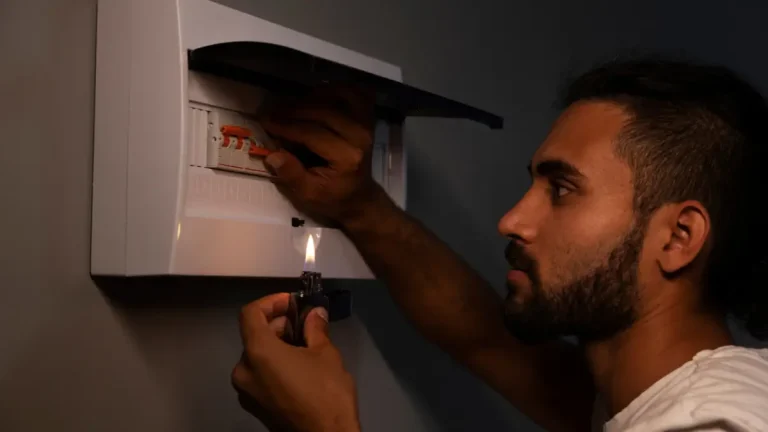When the lights go out, Gauteng doesn’t just sink into darkness. Pumps stop. Reservoirs stall. Sewage spills. Families twist taps and get nothing but air. Load shedding isn’t only about electricity—it’s the spark that blows up South Africa’s fragile water system.
Thank you for reading this post, don't forget to subscribe!“Switch the power off and the water goes with it,” said a Brixton café owner after a week of dry taps. “We can light candles for the mood. We can’t make coffee without water.”
ALSO READ: How the Water Crisis Affects Small Businesses in Gauteng
Power and Water: Locked Together
Water doesn’t move on its own. Electricity pushes it from dams and rivers, through treatment works, into reservoirs, and finally to your tap. Power also drives sanitation—sewage pumps, aerators, and disinfectant systems. Take away steady electricity, and the entire chain grinds to a halt.
In 2024, researchers from the University of Venda and the University of Cape Town studied a Limpopo village dependent on scheduled water deliveries. Their verdict was blunt: load shedding “disrupts substantially” and “threatens health, sanitation and local economies.” Gautengers know the routine: one pump station goes down while another powers up, pipes fall out of sync, reservoirs don’t refill, and fights break out at communal taps.
“We lost faith in the city’s schedule, so we just buy water,” one resident told the researchers. “It’s expensive, but without it, life and business stop.”
How The Crisis Plays Out
- Households pay twice. Families fight for bottled water or buy from vendors—an impossible cost for low-income homes.
- Businesses bleed. Salons, laundries, cafés, and panel beaters cut hours or close. Staff lose wages, owners lose stock, and customers drift away.
- Hospitals and schools strain. Hygiene protocols collapse, operations get postponed, and schools cancel activities or send learners home early.
- Sewage spills. Pump stations fail during outages. Waste flows into storm drains and rivers, sparking E. coli spikes and beach closures.
- Pipes burst. When the power surges back, pressure slams into brittle mains. One rupture drains an entire reservoir, leaving the suburbs dry again.
Johannesburg sits at particular risk. Many of its reservoirs rely on continuous pumping. At Stage 6 or 8, inflows stop for hours. By the time power returns, demand spikes, towers run low, and high-lying suburbs get nothing.
It’s Not Just The Blackouts
Load shedding exposes rot that already runs deep: ageing pipes, deferred maintenance, faulty meters, broken valves, and water demand that exceeds supply. Gauteng municipalities lose 35–40% of water to leaks and theft—double the global benchmark. Add hotter summers and longer droughts, and the system buckles further.
“Two crises are colliding,” warned a Johannesburg water analyst. “We under-invested in water for decades. Load shedding multiplies the pain.”
Building Resilience: What Works
No single fix will solve this—but combined, they can build a tougher system:
- Back up the pumps. Solar-hybrids, diesel generators, and battery banks keep flows alive during cuts. Costly, yes—but losing reservoirs costs more.
- Expand storage. More towers and modular ground tanks buy crucial hours when pumps fall silent.
- Align with the grid. Adjust pumping schedules to Eskom’s published blocks. Pre-charge reservoirs before cuts and extend delivery afterwards.
- Fix leaks fast. Pressure management and active leak detection free up supply we already have.
- Protect sanitation. Standby power at sewage plants prevents contamination, fines, and public fury.
- Coordinate for real. Water utilities, Eskom, City Power, disaster management, and communities must share one dashboard and one control room during high stages.
As one Gauteng water manager put it: “Add pump capacity, add storage, pre-charge before cuts. The technology isn’t the problem—coordination is.”
Why This Matters for Gauteng’s Economy
Gauteng thrives on density: people, businesses, clinics, restaurants, warehouses, universities. Density needs reliability. When taps run dry, productivity falls, health risks spike, and investor confidence erodes. Tourists remember hotels with no water. Restaurants remember fridges full of spoiled stock. Residents remember hauling buckets upstairs.
Heritage Day and Tourism Month are reminders: every museum, stadium, market, and township tour depends on clean, reliable water. Reliability is reputation.
What Residents, Businesses, and Leaders Can Do
Residents and building managers
- Store water in sealed containers; rotate stock.
- Report leaks with pinned locations and share case numbers to escalate.
- Stagger high-use tasks after outages.
- Fit pressure valves in high-rises to prevent internal bursts.
Businesses
- Map risks: taps, hours, suppliers.
- Use backflow prevention and design greywater reuse.
- Partner with neighbours on shared backup tanks.
- Join precinct forums to escalate issues collectively.
Municipalities and provinces
- Publish a 24/7 water-power dashboard with tower levels and tanker routes.
- Fast-track backup power at key stations with transparent tenders.
- Double leak response teams and publish progress.
- Align water pumping with load shedding blocks—and communicate changes early.
- Ring-fence budgets for pipe replacement and prove quarterly delivery.
The Bottom Line
Load shedding didn’t create South Africa’s water crisis—but it turned cracks into craters. The solutions exist: keep pumps running during cuts, store more when power flows, waste less through leaks, and coordinate like lives depend on it—because they do
A Creative, Constructive Call to Action
Turn your street water-smart in 30 days.
- Nominate a block water marshal to log and escalate leaks.
- Pool funds for a 2,000–5,000L emergency tank for elderly and vulnerable neighbours.
- Host a Saturday “Fix-a-Leak” blitz with local plumbers.
- Ask your councillor to bring Joburg Water to a pavement pop-up—showing tower levels and tanker plans in real time.
Water is life—and in Gauteng, it underpins jobs, tourism, and dignity. If we demand resilient systems and act together, our taps can run even when the lights don’t.




